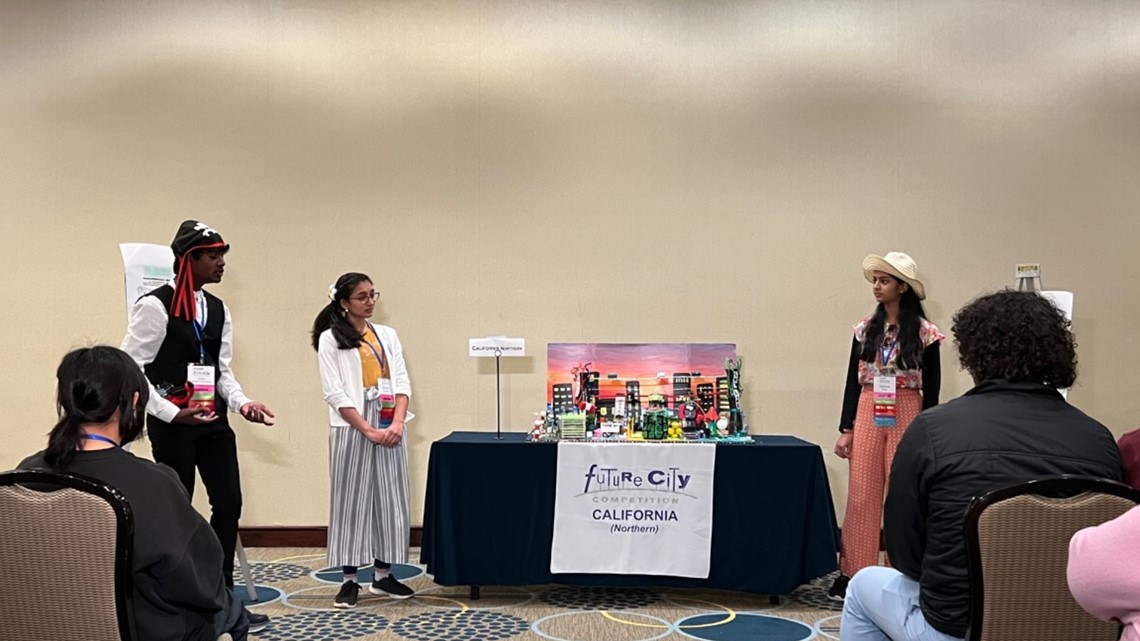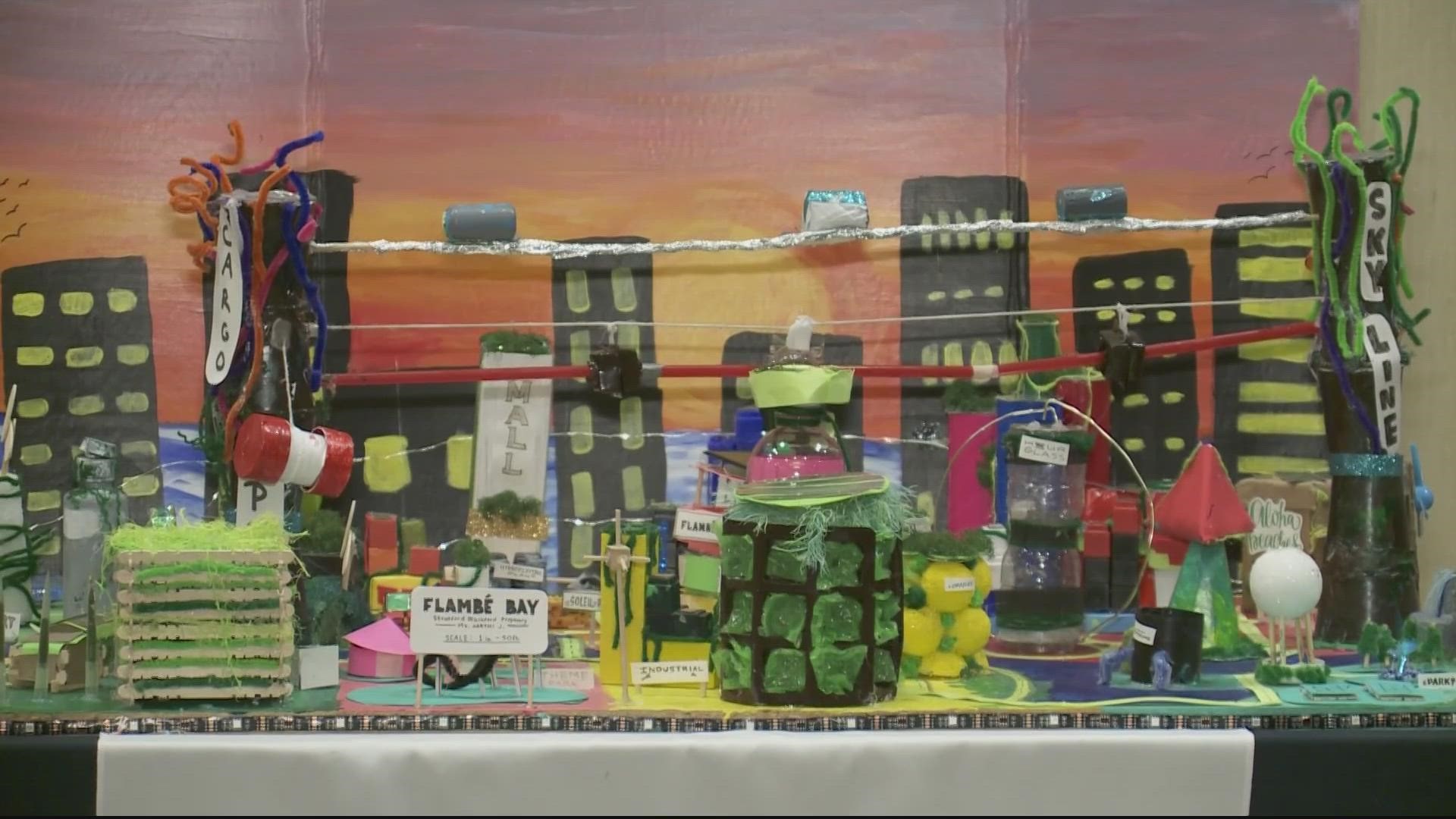WASHINGTON — Sixty thousand middle school students from the U.S. and China were given an assignment -- build a city 100 years in the future with climate change top of mind. Now, 600 of those students have come to Capitol Hill for the final round.
The "Future City" competition is a program of DiscoverE, a nonprofit dedicated to providing global resources, programs and connections to students from kindergarten through high school. Each year the competition has a theme and this year it's all about climate change.
For example, one group of students from Stratford Middle School in Northern California created the futuristic city of Flambe Bay, located in southern France off the coast of the Mediterranean Sea.
"We face climate change impact of rising sea levels," Siyona Kaer, an eighth-grader from Stratford Middle School, said. "So in the presentation, we'll be giving examples of what adaptive and mitigative techniques we've taken to cover this issue."
Looking at solutions to climate change is something D.C. is familiar with, given the regular flooding happening at the Tidal Basin.
"I feel like having kids in the next generation and getting to work on it, getting to see how we can actually make a change in the world really sends like a positive message," said Rishika Gautham, also an eighth-grader at Stratford Middle. "It helps us learn more about the world that we're going to be growing in."
Kaer added that the competition has the added benefit of increasing awareness within a school system.
"The ideas of all these climate change adaptations and mitigations help you get really kick-started in the process of what can we do in the future," she said.


The participating students learn from professionals in a months-long process.
"They talk to all kinds of engineers from mechanical to city builders to architect, even landscape, agricultural and biological engineers," said Kathy Renzetti, the executive director of DiscoverE. "They have a panel of judges of three professionals in the field and they present their model and their solutions and they also take questions. After you listen to them, our future is bright."
Country leaders are taking note. The central Pennsylvania regional team created a city in Ukraine and has since been invited to present at the Ukrainian Embassy during their visit to D.C.
The top prize is $7,500 for the organization's STEM program plus a trip to U.S. Space Camp in Huntsville, Alabama for up to five team members. Second place is awarded $5,000 for their STEM program. The third prize is $2,000 and the fourth and fifth place will receive $750.
But this competition is about more than just taking home a prize.
"I loved all the new skills we learned, all the project management skills we learned, everything learned about climate change and how we can impact it in the future," Kaer said. "Everything just coming together and making it out here to D.C., I feel that's really special and we're really grateful to have this opportunity."

